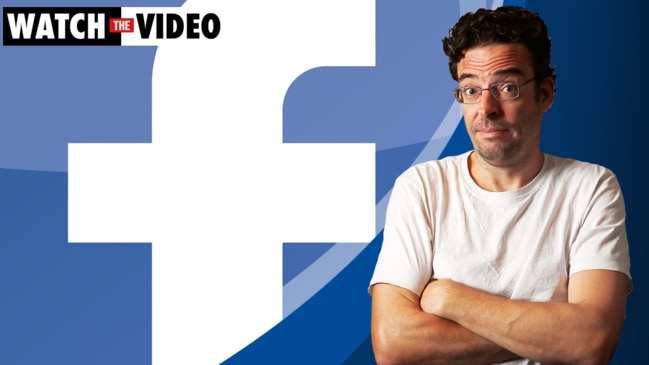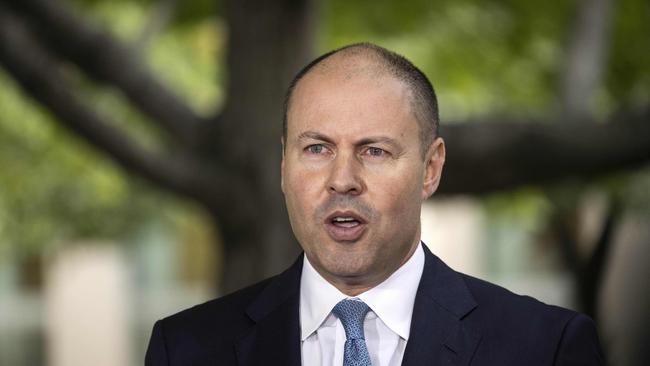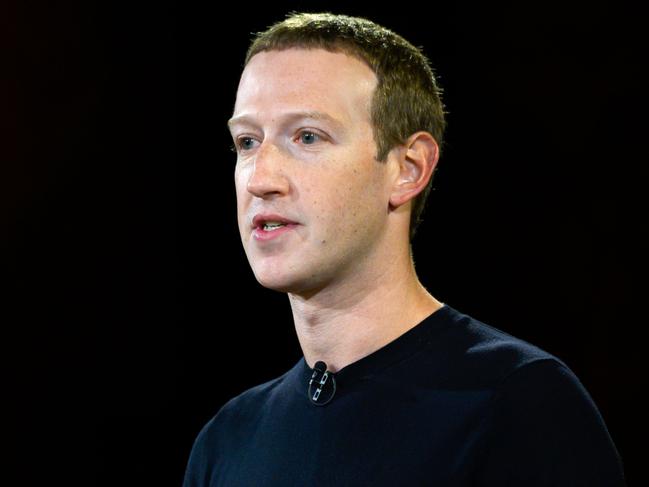Facebook news ban explained: What this means for users
Facebook has not only blocked news sites in Australia but weather and retailers. This is why it’s happened and how it affects you.

Online
Don't miss out on the headlines from Online. Followed categories will be added to My News.
Facebook has banned access to news publishers, TV stations, state government departments and even weather forecasts in its protest against Australian laws that would see it pay for the news it uses.
The multibillion-dollar tech giant has shocked its 17 million local users with sweeping bans that have even impacted satire sites and local bands.
But why is the world’s largest social network taking such extreme action in Australia, who does it really impact, and can you get around it? This is what we know so far.
Why did Facebook's news ban start today?
Facebook shocked its users and news outlets by rolling out its ban on news content in Australia early this morning.
Its move followed the passage of the News Media and Digital Platforms Mandatory Bargaining Code in parliament overnight, and a threat it made back in September.
Then Facebook Australia managing director Will Easton said banning news was not the company’s “first choice” but it would “reluctantly stop allowing publishers and people in Australia from sharing local and international news on Facebook and Instagram” to protest the law.
It’s worthwhile noting that even though the bill has passed in Australia, it’s not currently active. Facebook has taken this action early.
What is Facebook banning?
Australian users can no longer share any news stories from Australian or overseas publications and media outlets.
Whether you’re trying to share a story from News.com.au or from the New York Times, you’ll see an error message appear telling you that “something’s gone wrong” and Facebook is “working to get it fixed as soon as we can”. That is not the case.
Australian are also beginning to see a pop-up warning at the top of their Newsfeed that “the way you share news is changing”.
Facebook’s users from other countries will also be unable to share links from any Australian media outlets under the company’s new ban.
Is it just news outlets that Facebook has banned?
No. Organisations many wouldn’t consider to be news outlets are being stopped from posting information on Facebook as part of this action.
They include the Australian Bureau of Meteorology, state health organisations including Queensland Health, and satirical sites including the Betoota Advocate and The Weekly with Charlie Pickering. Even Harvey Norman’s page has disappeared.
This ban will prevent Australians from sharing vital weather information, details about coronavirus cases and hot spots, and even jokes.
Facebook has indicated it will try to reinstate the posts of government pages, including for health departments and weather services, after a blanket ban wiped posts with critical information from the platform.
In a statement a Facebook spokesman said government pages “should not be impacted” by the ban.
“The actions we are taking are focused on restricting the publishers and people in Australia from sharing or viewing Australian and international news content,” he said.
“As the law does not provide clear guidance on the definition of news content, we have taken a broad definition in order to respect the law as drafted.
“However, we will reverse any pages that are inadvertently impacted.”
What about news stories I’ve already shared?
Facebook censors swept through the pages of Australia news outlets overnight, deleting all their past posts.
The pages of outlets such as News.com.au, The Guardian, The Daily Telegraph, The Guardian, Seven News, and Sydney Morning Herald now feature a blank slate stating “no posts yet”.
They still have the same number of followers but there’s absolutely no content to see.

Is there any way to get around the ban?
You cannot get around Facebook’s news ban by using a VPN (virtual private network) to hide your location.
However, there are some loopholes. Some Facebook users employing a VPN can still post news links to corporate web pages.
Facebook users have also tried to get around the ban by posting news videos from YouTube but many have now been deleted too.
What happens to my old Facebook posts?
Many Facebook users are reporting that news stories they previously shared, along with the comments beneath them, have been deleted.
Some may have already had these posts removed from their pages, while others may see them disappear as Facebook slowly combs its site for articles.
There’s no word on whether these posts have been saved or have been permanently purged.
Is Instagram affected?
Only Facebook’s Newsfeed was due to be impacted by Australian laws governing news and it would appear the tech giant has not extended its ban to its other social networks Instagram and WhatsApp so far.
The pages of news sites and their posts still appear on Instagram and older posts remain untouched.

Why did Facebook do this?
Facebook — a $762 billion company and the world’s largest social network — objected to laws that would see it pay Australian media outlets for using their content on its social network.
The company argued that it would have to strike many commercial deals under the laws, and Facebook was actually doing news publishers a favour by hosting their content.
In a blog post, Mr Easton argued that “the value exchange between Facebook and publishers runs in favour of the publishers,” and that news content was not of value to the social network.
Is Facebook allowed to do this?
Facebook changed its terms and conditions for Australian users in October, ensuring it could legally remove content from its platform as it saw fit.
The October 1 update stated: “We also can remove or restrict access to your content, services or information if we determine that doing so is reasonably necessary to avoid or mitigate adverse legal or regulatory impacts to Facebook.”
This ban is also a reminder that Facebook is not a public service but a private entity designed to turn a profit.
Does Facebook pay for news elsewhere?
The company has launched its own news product in other countries but in January said it would stop looking into launching the project in Australia to protest the incoming laws.
Mr Easton said the social network would “prioritise other countries for investment until we understand the impact” of the news code.
In today’s post, he also said Facebook was only prepared to launch a news service in Australia “with the right rules in place”.
While Google responded to the news laws by signing deals with media outlets in Australia, Facebook argued “the business gain from news is minimal” on its platform.
More Coverage
Originally published as Facebook news ban explained: What this means for users





